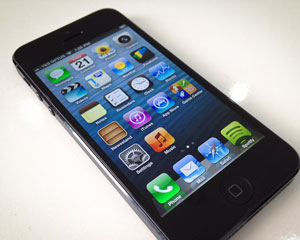
The internet is one of the critical needs for almost everyone in the world today. While most countries have enough internet penetration, Zimbabwe is one of those countries with less internet coverage. As of January 2021, the internet penetration of Zimbabwe was 33.4%. The percentage has improved in recent years, but it is a bit low. It translates to around 5.01 million internet users in Zimbabwe.
Internet speed comparisonAs for speed, Zimbabwe is also among the countries that do not get to enjoy the fastest connections possible. According to statistics, Zimbabwe rates as the 134th country when it comes to mobile internet performance. For the fixed bandwidth, the country stands in the 153rd position.
Thus, the average mobile speed is 12.69 Mbps (for download) and 6.85 Mbps (for upload). For comparison, the global average for mobile speed is 55.34 Mbps (download) and 12.69 Mbps (upload).
As for the fixed broadband, the global average is 106.61 Mbps (download) and 57.67 Mbps (upload). In Zimbabwe, the average download speed is 15.23 Mbps and 15.43 Mbps for upload.
In 2020, many TelOne clients complained about poor internet performance and lengthy downtimes. Due to these disturbances, many customers could not access the internet. This drop was incredibly frustrating for people using the internet for business or educational purposes.
These complaints came after the company completed up to a 200% hike in voice, SMS, and data tariffs.
Remote learning is affectedCOVID-19 was why 91.3% of the student population of the world was affected as they could not attend school. However, the internet was a boon for the students as they could easily take online classes and learn right from their homes.
It was not that easy for 4.13 million students in Zimbabwe. As the internet services in the countries were shut down multiple times during the pandemic period, there were many issues that the natives of the country faced, and this was one of them.
- Chamisa under fire over US$120K donation
- Mavhunga puts DeMbare into Chibuku quarterfinals
- Pension funds bet on Cabora Bassa oilfields
- Councils defy govt fire tender directive
Keep Reading
As per a survey of 2018, most Zimbabwean households did not have mobile phones with internet facilities. The scenario has improved a bit today. Hence, remote learning was affected due to the internet scenario in Zimbabwe.
What are the ways to use the Internet safely?Yes, internet services are not exactly ideal for everyone in Zimbabwe. However, if your problem is not the internet but the unavailability of content, there are many ways to get hands-on. Moreover, as the number of cyberattacks is increasing these days, you must focus on data security while accessing the internet. Here are some ways to access the web safely!
VPNUsing a VPN is one of the best decisions you can make. It is highly useful in defending against intrusive data-gathering and activity tracking. Additionally, it allows you to manipulate your virtual location. And, in some cases, it could mean that your internet performance might improve (for instance, if your ISP is throttling your connection). Thus, it is worth a shot if you experience extremely sluggish performance (be it in Zimbabwe or elsewhere).
Incognito ModeGoogle Chrome browser features an incognito mode in which all of your data is erased after you leave the website when browsing history is enabled. This makes sure that your private information remains private.
You can also use browsers like UC Browser or Mozilla Firefox; they have additional features to keep your information safe from hackers as well as governments. You must enable their privacy mode for maximum protection!
Private BrowsersOther than Google Chrome, Firefox and Edge, many other browsers can help you keep your personal data safe. Web browsers like DuckDuckGo, Tor, and Brave are solely made while keeping privacy in mind. They do not record your search history or passwords. Instead, they erase all the data from your browser after every session.
Proxy ServicesUsing proxy services is somewhat similar to using a VPN. The only difference is that proxies are not exactly best in terms of security or privacy. For instance, while they will change IP addresses, they won’t offer much in terms of protecting your internet traffic.
Final WordsThe internet services are improving in Zimbabwe day after day. As compared to 2020, there has been an increase of 203,000 internet users in the country. Hence, if you are one of those users, you can browse the web safely with the methods mentioned above.











